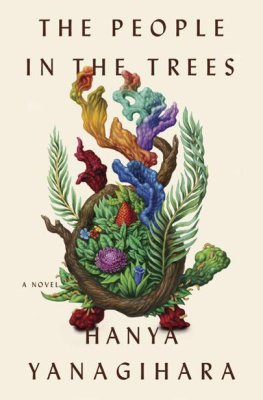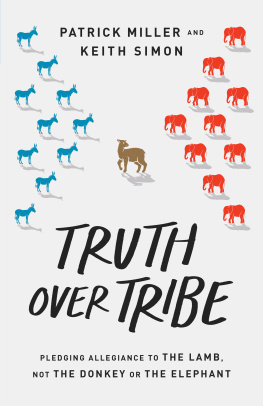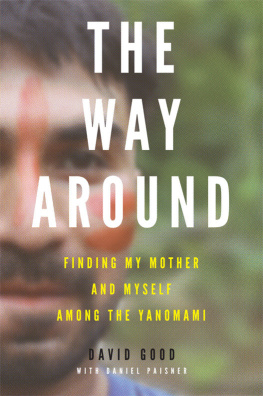Hanya Yanagihara
The People in the Trees
PROSPERO:
A devil, a born devil, on whose nature
Nurture can never stick; on whom my pains,
Humanely taken, all, all lost, quite lost;
And as with age his body uglier grows,
So his mind cankers. I will plague them all,
Even to roaring.
The Tempest, ACT IV, Scene 1
To my father
Vom Vater Lust zu fabulieren

March 19, 1995
Renowned Scientist Faces Charges of Sexual Abuse
BY THE ASSOCIATED PRESS
Bethesda, Md. Dr. Abraham Norton Perina, the renowned immunologist and director emeritus of the Center for Immunology and Virology at the National Institutes of Health in Bethesda, Maryland, was arrested yesterday on charges of sexual abuse.
Dr. Perina, 71, was charged with three counts of rape, three counts of statutory rape, two counts of sexual assault, and two counts of endangering a minor. The charges originated with one of Dr. Perinas adopted sons.
These charges are false, said Perinas attorney, Douglas Hindley, in a statement yesterday. Dr. Perina is a prominent and highly respected member of the scientific community, and is eager to resolve this situation as quickly as possible so that he may return to work and his family.
Dr. Perina won the Nobel Prize in Medicine in 1974 for his identification of Selene syndrome, a condition that retards aging. The condition, in which the victims body remains preserved in relative youth even as his mind degrades, was found among the Opaivueke people of Ivuivu, one of the three islands of the Micronesian country of Uivu. It was acquired through the consumption of a rare turtle for which Dr. Perina named the tribe and whose flesh was discovered to inactivate telomerase, the naturally occurring enzyme that disintegrates telomeres and thereby limits each cells number of divisions. Individuals affected by Selene syndrome named for the immortal and eternally youthful moon goddess in Greek mythology were found to be able to live for centuries with the condition. Perina, who first traveled to Uivu as a young physician with the noted anthropologist Paul Tallent in 1950, spent many years in the islands conducting field research. It was also there that he adopted his 43 children, many of them orphans or sons and daughters of impoverished Opaivueke tribespeople. A number of the children are currently under Perinas care.
Norton is an exemplary father and a brilliant mind, said Dr. Ronald Kubodera, a longtime research fellow in Perinas lab and one of the scientists closest friends. I have every faith that these ridiculous charges will be dropped.

December 3, 1997
Prominent Scientist, Nobel Laureate, Sentenced to Prison
BY REUTERS
Bethesda, Md. Dr. Abraham Norton Perina was sentenced today to 24 months at the Frederick Correctional Facility.
Dr. Perina was awarded the 1974 Nobel Prize in Medicine for proving that the ingestion of a now-extinct turtle from the Micronesian country of Uivu would inactivate telomerase, which limits each cells number of divisions. The condition, which is known as Selene syndrome, was found to be transferable in a variety of mammals, including humans.
Perina was among the only Westerners to be granted unlimited access to this most remote and secretive of islands, and in 1968 he adopted the first of what were to be 43 children from the country, all of whom were raised in his Bethesda home. Two years ago, Perina was charged with rape and endangerment of a child; his accuser is one of his adopted children.
This is a great tragedy, says Dr. Louis Altschur, the director of the National Institutes of Health, where Dr. Perina was a scientist for many years. Norton is a great mind and talent, and I fervently hope that he will be able to get the treatment and help he needs.
Neither Perina nor his lawyer could be reached for comment.
I am Ronald Kubodera but only in academic journals. To everyone else, I am Ron. Yes, I am the Dr. Ronald Kubodera about whom you have no doubt read in the magazines and newspapers. No, not all the stories are true they rarely are, of course.
But in my case, the most important ones are, and I am proud of them. I am proud, for example, to have any sort of relationship at all with Norton (and mind you, just eighteen months ago I would not have even needed to say this), whom I have known since 1970, when I began working in his lab in Bethesda, Maryland, at the National Institutes of Health. Norton had not then received his Nobel Prize, but already his work had revolutionized the medical community, forever changing the way scholars would perceive the fields of virology and immunology, as well as, it should be said, medical anthropology. I am proud too of the fact that after establishing a relationship as colleagues, we began an equally intense one as friends; indeed, my relationship with Norton is the most meaningful one I have ever known. Most important, though, I am proud of the fact that after the events of the previous two years, I am still his friend, and he is still mine.
Not, of course, that I have had the opportunity to speak or communicate with Norton as often as Id or, no doubt, hed like. It is a strange and lonely thing, not having him nearby. In fact, until I moved here1 some sixteen months ago a month after Nortons sentence was handed down I dont believe that, in the natural course of daily events and so forth, wed spent more than two days not in each others company. Maybe not even that long. (I am, of course, excluding special circumstances, such as the occasional vacation with my then-wife, or trips we made independent of each other to events such as funerals and weddings, etc. But even on those occasions, I would make an effort to communicate with him daily, either by phone or by fax.) The point is, talking to Norton, working with Norton, being with Norton, was simply a part of my quotidian life, in much the way some people watch television daily or read the newspaper daily: it is one of those forgettable yet not insignificant rituals, one that reassures you that life is progressing as expected. But when such a rhythm is suddenly interrupted, it is worse than unsettling, it is unmooring. It is how I have been feeling this past year and a half or so. In the mornings I wake and go through my day as always, but in the evenings I invariably delay bedtime, wander through my apartment, stare out into the night, wonder what it is I have forgotten. I tick down the dozens of tiny chores that I complete, thoughtlessly, in a typical day letters opened and answered? deadlines met? doors locked? until finally, regretfully, I climb into bed. It is only on the lip of sleep that I remember that the very pattern of my life has changed, and then I experience a brief moment of melancholy. You would think that I would be able by now to accept the changed circumstances of Nortons, and by extension my, life, but something in me resists; he was, after all, part of my routine for almost three decades.
But if life is lonely for me, it is far lonelier for Norton. When I think of him in that place, I am quite simply angry: Norton is no longer a young man, nor a healthy one, and imprisonment hardly seems an appropriate or reasonable punishment.
I know this belief is a minority opinion. I have lost count of the number of times I have tried to explain Norton his humanity, his intelligence, his extraordinariness to friends, colleagues, and reporters (and judges, juries, and lawyers). Indeed, there have been many times over these past sixteen months when I am reminded of Nortons former friends treachery, how quickly they forgot and abandoned a man they claimed to love and respect. Some friends people Norton had known and worked with for decades all but vanished as soon as charges were brought against him. Worse, though, were those who left him after he was found guilty. I was reminded then of how disloyal and duplicitous most people are.












